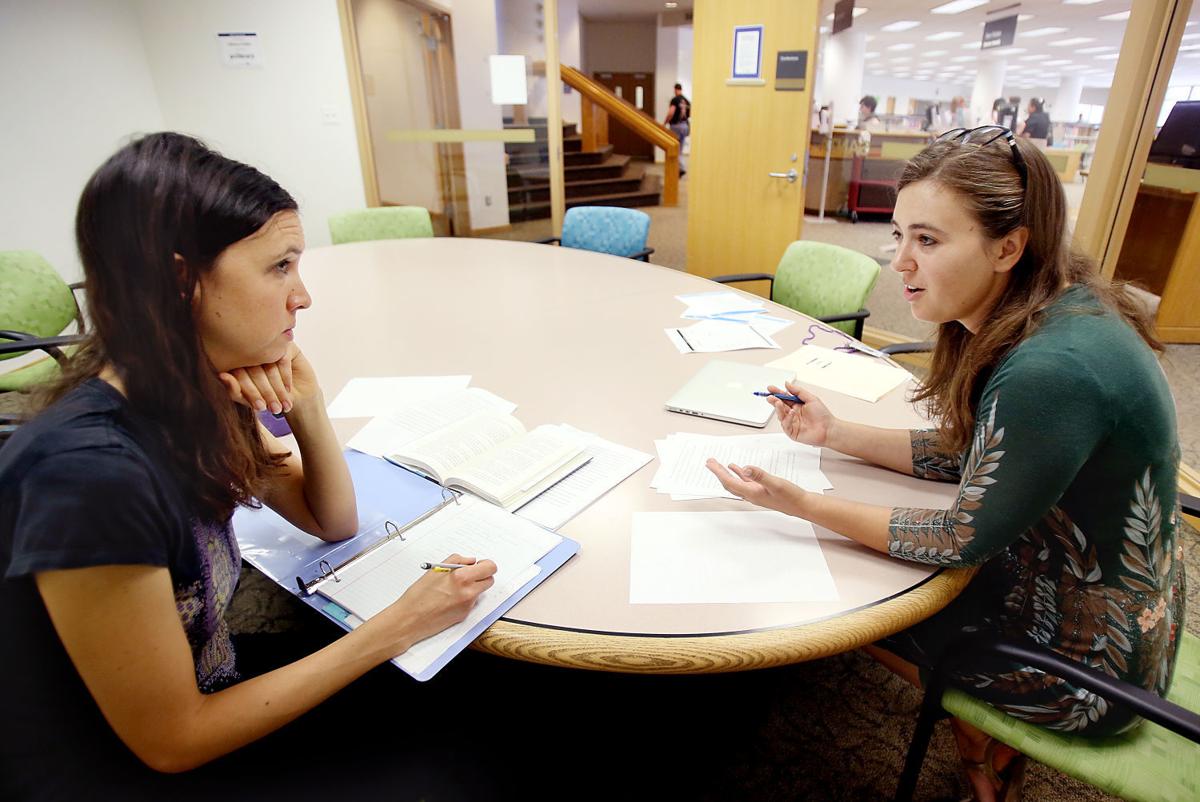Writing can be a daunting pursuit. The solitary writer faces a blank canvas where their deep fears and bright dreams fight to come to life. And that’s just the title page.
But while the writing process can still be intimidating, would-be authors don’t have to tackle it alone thanks to the Pima County Public Library’s Writer-in-Residence Program.
The free program includes one-on-one office hours with published authors, writing workshops and a public space for the writer-in-residence to work on projects.
For beginners, to sit down with a successful author and demystify the business of writing can be very powerful, said Holly Schaffer, community relations manager for the Pima County Public Library.
The current writer-in-residence is Adrienne Celt, whose new novel, “The Daughters,” was named a Best Book of 2015 by National Public Radio, and her short story “Temples” is a 2016 O. Henry Prize winner.
“It’s not every day you can get advice from someone with those credentials,” Schaffer said.
For Celt, who thinks libraries are one of our most important social resources, participating in the residency is akin to answering the Bat Signal.
The writer’s life can be lonely, and it can be hard to have a calling that’s outside the scope of a regular job, she said. The program brings people together with others who understand that.
“This gives me a chance to connect with writers who are lonely or confused or just need another pair of eyes on their work — which is every writer,” Celt said.
Since she began her residency June 1, she has spoken with about eight writers a week during her office hours. Their projects have ranged from finished work to discussing ideas.
“Some people have even come in asking for writing therapy, essentially,” she said. “I have loved it all so far.”
There’s a lot of interest in creative writing throughout the community, but support is not always accessible, said project manager Amy Ledin, who also spearheaded sister programs in the Phoenix area.
“We want to make this available for all types of people,” she said, adding that being able to put what you feel down on paper is an important skill.
Janni Lee Simner, author of the young-adult “Bones of Faerie” trilogy, was the program’s first Tucson writer-in-residence earlier this year. She enjoyed seeing all the different stages the writers were with their work.
“That really stuck out for me, connecting with those journeys in so many places,” she said.
Sometimes the most important thing she did was remind people they have a right to be working on their writing and they should continue. She gave them permission to be themselves, she said.
During her three-month residency, Simner saw 45 people during her office hours, over half in the last month, she said. More than 40 people attended her workshops.
“The fact that it’s at the library means that it’s free and accessible, regardless of whether someone can afford a workshop,” she said. “Anyone could drop in.”
The library setting also provided other resources, Simner said.
About one in five of her office-hour walk-ins either had trouble using computers or just couldn’t afford one. The library offers people not only access to technology but also classes on how to use it.
Where the program will go after Celt’s residency ends in September depends on interest in the program and availability of funds, officials said.
Ledin, the program’s initiator, hopes to not only continue, she said, but expand to include readings, writing groups and ultimately reach more people.





